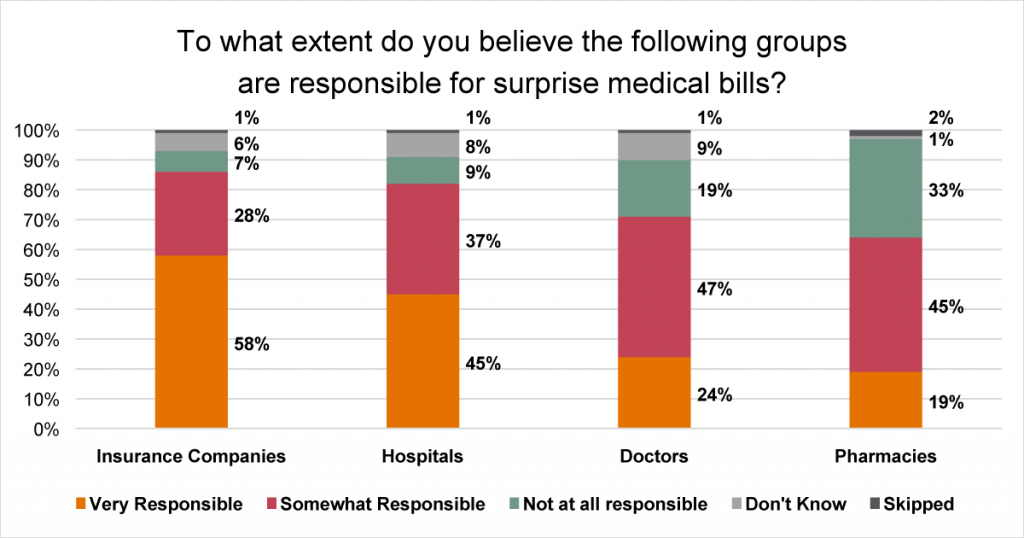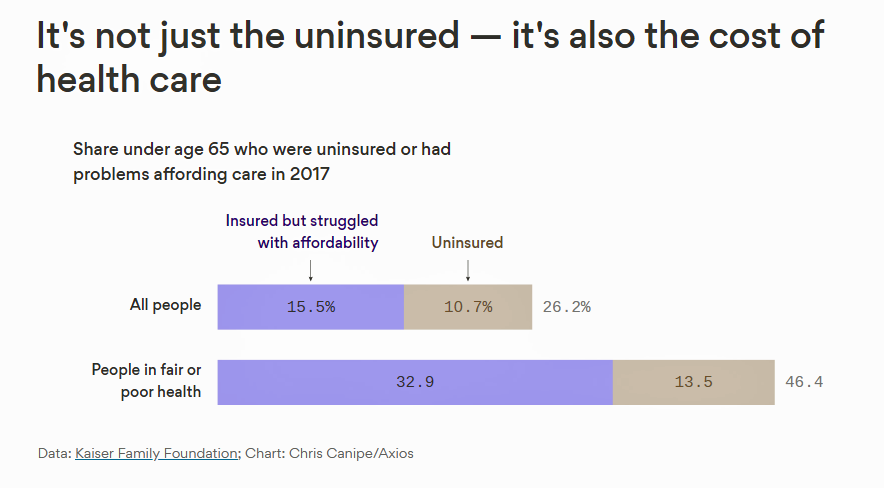 Most Americans have been surprised by a medical bill, a NORC AmeriSpeak survey found.
Most Americans have been surprised by a medical bill, a NORC AmeriSpeak survey found.
Who’s responsible? Nearly all Americans (86% net responsible) first blame health insurance companies, followed by hospitals (82%).
Fewer U.S. patients blamed doctors and pharmacies, although a majority of consumers still put responsibility for surprise healthcare bills on them (71% and 64% net).
Most of the surprise bills were for charges associated with a physician’s service or lab test. Most surprise charges were not due to the service being excluded from a health plans provider network.
The poll was conducted among 1,002 U.S. adults 18 and over in August 2018.
Health Populi’s Hot Points: This study was conducted across a broad consumer demographic, among working people and retirees, people earning lower and higher incomes, of various education levels.
 The findings reinforce what we know-we know about health care in America: that “It’s not just the uninsured – it’s also the cost of health care,” as Drew Altman of Kaiser Family Foundation wrote in Axios on 20 August 2018.
The findings reinforce what we know-we know about health care in America: that “It’s not just the uninsured – it’s also the cost of health care,” as Drew Altman of Kaiser Family Foundation wrote in Axios on 20 August 2018.
See the second bar chart for the data supporting Altman’s observation. If you’re under 65 and were uninsured or had problems affording health care in 2017, you tended to be less healthy — in fair or poor health — compared with others who lacked insurance or money to pay for care.
I wrote my first post on Health Populi nearly eleven years ago Labor Day week 2007. The theme was, “Health Care is the #1 Line Item In Our National Economy…and Taking More Out of Your Pocket.”
As the French say, “plus ça change, plus c’est la même chose,” which translates to, “the more things change, the more they stay the same.”
Actually, some things haven’t stayed the same: then, healthcare spending comprised 15.9% of the U.S. GDP and the cost of a PPO for a family of four was $ 14,500.
 In 2017, healthcare made up 18.2% of the GDP and that PPO reached $ 28,166 — nearly two times the 2007 cost.
In 2017, healthcare made up 18.2% of the GDP and that PPO reached $ 28,166 — nearly two times the 2007 cost.
I included this image from Tom’s Shell petrol station in that first post. Plus ça change.
